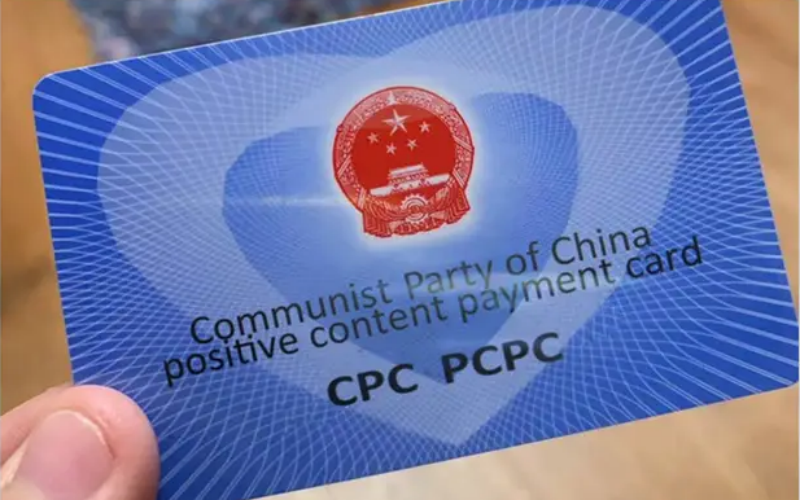With the development of the world economic integration trend, more and more foreign companies are looking at China as the big market player. They are choosing to carry out business activities in China. However, whether it is a wholly foreign-owned enterprise or a joint venture is subject to relevant Chinese laws. So, what does wfoe law stipulate? What are the detailed chapters of wfoe law? and What is the significance of issuing wfoe law? Today let us understand wfoe law together.
WFOE law has five highlights:
- 1. Admittance national treatment for foreign investment;
- 2. Adhere to the consistency of domestic and foreign investment;
- 3. Protect intellectual property rights;
- 4. Establish and improve the foreign investment service system;
- 5. Establish a foreign investment information reporting system.
WFOE law in china
To further expand the opening to the outside world, actively promote foreign investment. To protect the legitimate rights and interests of foreign investment, standardize the management of foreign investment, promote the formation of a new pattern of comprehensive opening up, and promote the healthy development of the socialist market economy. China formulated this law by the Constitution.
Foreign investment in the People’s Republic of China applicable to this law.
wfoe law refers to investment activities carried out directly or indirectly by foreign investors in China, including the following situations:
(1) Foreign investors set up foreign-invested enterprises in China alone or together with other investors;
(2) Foreign investors obtain shares, equity, property shares or other similar rights and interests of Chinese domestic enterprises;
(3) Foreign investors invest in new projects within China alone or together with other investors;
(4) Investment in other ways stipulated by laws, administrative regulations, or the State Council.
The State will protect foreign investors’ investment, income, and other legitimate rights and interests in China according to WFOE law. Foreign-invested enterprises that carry out investment activities within China shall abide by Chinese laws and regulations, and shall not endanger China’s national security or harm public interests.
Foreign-invested enterprises shall equally apply various national policies supporting enterprise development by law. When formulating laws and regulations related to foreign investment, China should take appropriate measures to solicit opinions and suggestions from foreign-invested enterprises. Regulatory documents and judgment documents related to foreign investment shall be published in time according to law. The state establishes and improves a foreign investment service system to provide foreign investors and foreign-invested enterprises with advice and services in laws, regulations, and investment project information.
The state guarantees that foreign-invested enterprises participate in government procurement activities through fair competition by law. Government procurement shall treat all products and services provided by foreign-invested enterprises within the territory of China under law.
Governments at all levels should simplify handling procedures, improve handling efficiency, optimize government services, and further improve the level of foreign investment services. The relevant competent department should prepare and publish guidelines for foreign investment to provide services and facilities for foreign investors and foreign-invested enterprises.
The state encourages and guides foreign investors to invest in specific industries, fields, and regions following the needs of national economic and social development. Foreign investors and foreign-invested enterprises can enjoy preferential treatment by-laws or the regulations of the State Council
The state does not levy foreign investors’ investment. Under special circumstances, the state may, under the provisions of the law, impose a levy on the investment of foreign investors following the law. The expropriation shall be carried out by legal procedures, and fair compensation shall be promptly given.
The state protects the intellectual property rights of foreign investors and foreign-invested enterprises, and protects the legitimate rights and interests of intellectual property rights holders and related rights holders; it strictly investigates legal liabilities for intellectual property rights infringements.
The State encourages technical cooperation based on voluntary principles and business rules in the process of foreign investment. The conditions for technical cooperation shall be determined by all parties to the investment under the principle of fairness and equal consultation. Administrative agencies and their staff shall not use administrative means to force the transfer of technology.
The administrative organs and their staff shall keep the business secrets of foreign investors and foreign-invested enterprises known in the course of performing their duties confidential according to law, and shall not disclose or illegally provide them to others.
Governments at all levels and their relevant departments shall formulate regulatory documents concerning foreign investment, which shall comply with the provisions of laws and regulations; without legal basis, they shall not detract from the legitimate rights and interests of foreign-invested enterprises or increase their obligations, or even interfere in the normal production of foreign-invested enterprises Business activities.
Foreign investors are not allowed to invest in the areas prohibited by the foreign investment list. The foreign investment list stipulates areas where investment is restricted, and foreign investors should comply with the conditions stipulated in the negative list when making investments. Fields outside the foreign investment list shall be managed by the principle of consistency between domestic and foreign investment.
Where foreign investment requires approval and filing of investment projects, it shall be implemented by relevant state regulations. Foreign investors investing in industries and fields that need to obtain permits under law shall go through relevant permit procedures by law.
Foreign-invested enterprises carrying out production and operation activities shall abide by the provisions of laws and administrative regulations on labor protection and social insurance. It should handle taxation, accounting, foreign exchange, and other matters by laws, administrative regulations , and relevant state regulations, and accept the supervision and inspection carried out by relevant competent authorities according to law.
The state establishes a foreign investment security review system to conduct security reviews on foreign investments that affect or may affect national security. The safety review decision made in accordance with the law is final.
If a foreign investor invests in areas prohibited by the negative list of foreign investment, the relevant competent department shall order the investment activities to be stopped. In addition, the shares or assets shall be disposed of within a time limit or other necessary measures shall be taken to restore the state before the implementation of the investment; if there is illegal income, the illegal income shall be confiscated.
If the investment activities of foreign investors violate the special management measures for restrictive access specified in the Negative List of Foreign Investment, the relevant competent authority shall order them to make corrections within a time limit and take necessary measures to meet the requirements of the special management measures for access.
If a foreign investor’s investment activities violate the provisions of the negative list of foreign investment, in addition to handling in accordance with the provisions of the preceding two paragraphs, he shall also bear corresponding legal responsibilities in accordance with law.
Staff members of administrative organs who abuse their powers in the promotion, protection and management of foreign investment and even provide others with business secrets learned in the course of performing their duties shall be punished according to law; those who constitute a crime shall be investigated for criminal responsibility according to law.
Where any country or region takes discriminatory restrictions or other similar measures against the People’s Republic of China in terms of investment, the People’s Republic of China may take corresponding measures against that country or region based on actual conditions.
This law is a wfoe law established in accordance with the Law of the People’s Republic of China on Sino-foreign Joint Ventures and the Law of the People’s Republic of China on Foreign Investment Enterprises. Within five years after the implementation of wfoe law, the original enterprise organization form can be retained. The specific implementation measures shall be prescribed by the State Council.

Conclusion:
We have already introduced the relevant regulations of wfoe law above. If you want to start your business in China, you can check out our related services
Our professional team will always give you our best service.
Why choose GEI for company establishment?












